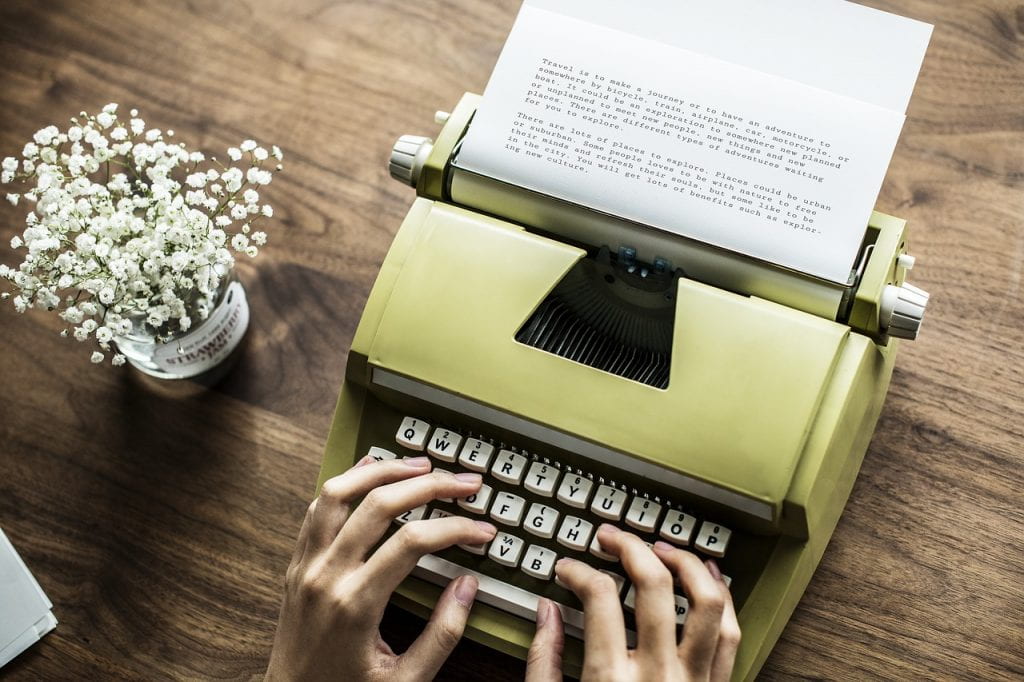
rawpixel / Pixabay
The lure of a bookstore is a siren call to many including myself. Shelves filled with stories and adventures beckoning you forward with teasing front covers and titles. Brightly coloured displays featuring best sellers line the walls to show the world what is popular and what is not. They beguile and tempt readers both adult and child.
Today bookstores are shrinking. Both in quantity of stores and in the quantity of products on the shelves. The advent of Amazon and its incestuous relationship with Google, Facebook and Apple have forever changed the way readers pick up a book. Gone are the days of browsing shelves to discover new authors and titles as Shatzkin (2016) points out. Instead the modern citizen tends to use social media ie Facebook, search engines ie Google and online merchandising as reference points. Compared to previous times where book reviewers, book store buyers and collection developers were the ones that promoted books to the public (Shatzkin, 2016).
The advent of ebooks and audio books (text to hear) have also had their impact on the bookstore. The vicious cycle of purchases online only leads to lower sales in bookstores and then the inevitable reduction of shelf space and then the buyer heads online to find their elusive title. With reduced shelf space Shatzkin (2013) points out that publishes lose out on the ability to market to their readers. The death noll is tolling for many publishing houses across the world as its more efficient for authors to self publish and market their own books than wade through publishing house red tape (Shatzkin 2013).
But what does this change mean? To put it bluntly, the evidence is pointing to a grim future for the humble book. Amazon currently has over half the sales of books whether they be online or physical as Esposito (2014) points out. This is only going to get larger with the steady increase in ebook sales. Such a monopoly on an industry is ominous. With their strength, one could predict Amazon placing pressure on publishers to print books that they deem ‘viable’. Smaller publishing houses will struggle to ‘muscle’ their way into this industry as the margins are ever shrinking (Shatzkin 2013). Combined with the aforementioned entangled relationship between Amazon, Google, Facebook and Apple, the publishing market is being strangled slowly.
The undertone of this monopoly is evident. Since the profit margins from ebooks is significantly higher than print editions, Amazon can in actuality force the consumer from physical to electronic resources. This has wider implications on readers, both recreational and academic. This isn’t just “the death of a bookstore, but the slow succumbing death of the book itself” (College.Candy.com 2011)
The Shatzkin files paint a dismal picture for the local school library. The demise of publishing houses will only lead to a few print copies that are unsuitable for ebooks. Libraries, should they still exist, will now be hosting a larger ebook collection compared to print copies. This change in resources means that more effort must be made to equip students with digital literacy in order to engage with suitable material. Reading digitally or using audiobooks requires more from the reader to be vigilant from distractions and lacks the sensory satisfaction a book can give (Copyright Agency, 2017 and Schaub 2016).
References
CollegeCandy.com (2011) The death of the book store. HuffingtonPost Retrieved from ://www.huffingtonpost.com/college-candy/the-death-of-the-bookstor_b_809104.html
Copyright Agency. (2017, February 28). Most teens prefer print books [Blog post]. Retrieved from https://www.copyright.com.au/2017/02/teens-prefer-print-books/
Esposito, J., (2014) Who can rival Amazon https://scholarlykitchen.sspnet.org/2014/01/22/who-can-rival-amazon/
Schaub, M. (2016). 92% of college students prefer print books to e-books, study finds. Los Angeles Times. Retrieved from http://www.latimes.com/books/jacketcopy/la-et-jc-92-percent-college-students-prefer-paper-over-pixels-20160208-story.html
Shatzkin, M., (2013) An innocent story with dramatic implications. The Shatzkin Files. Retrieved from https://www.idealog.com/blog/an-innocent-story-with-dramatic-implications/
Shatzkin, M., (2013) An innocent story with dramatic implications. The Shatzkin Files. Retrieved from https://www.idealog.com/blog/losing-bookstores-is-a-much-bigger-problem-for-publishers-than-it-is-for-readers/
Shatzkin, M. (2016). Book publishing lives in an environment shaped by larger forces and always has. The Shatzkin Files. Retrieved from http://www.idealog.com/blog/book-publishing-lives-in-an-environment-shaped-by-larger-forces-and-always-has
Shatzkin, M. (2018) Words-to-be-read are losing ground to words-to-be-heard. The Shatzkin Files. Retrieved from https://www.idealog.com/blog/words-to-be-read-are-losing-ground-to-words-to-be-heard-a-new-stage-of-digital-content-evolution